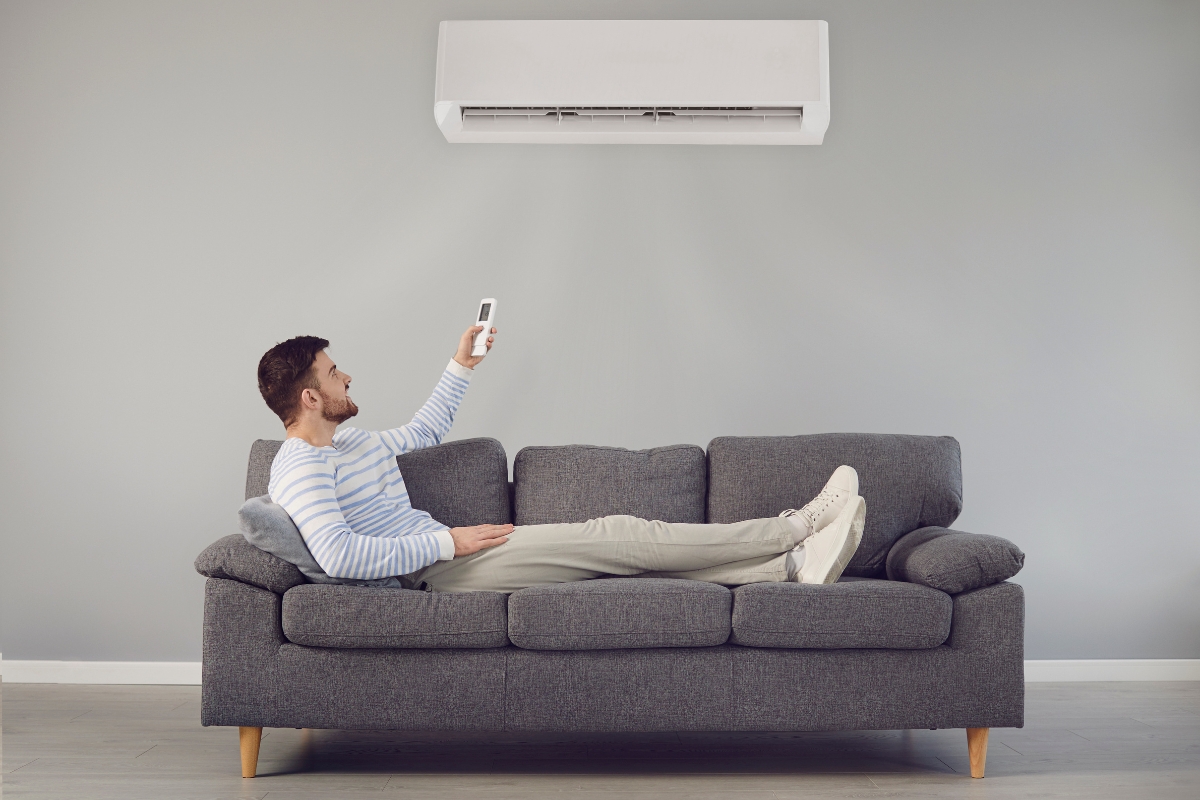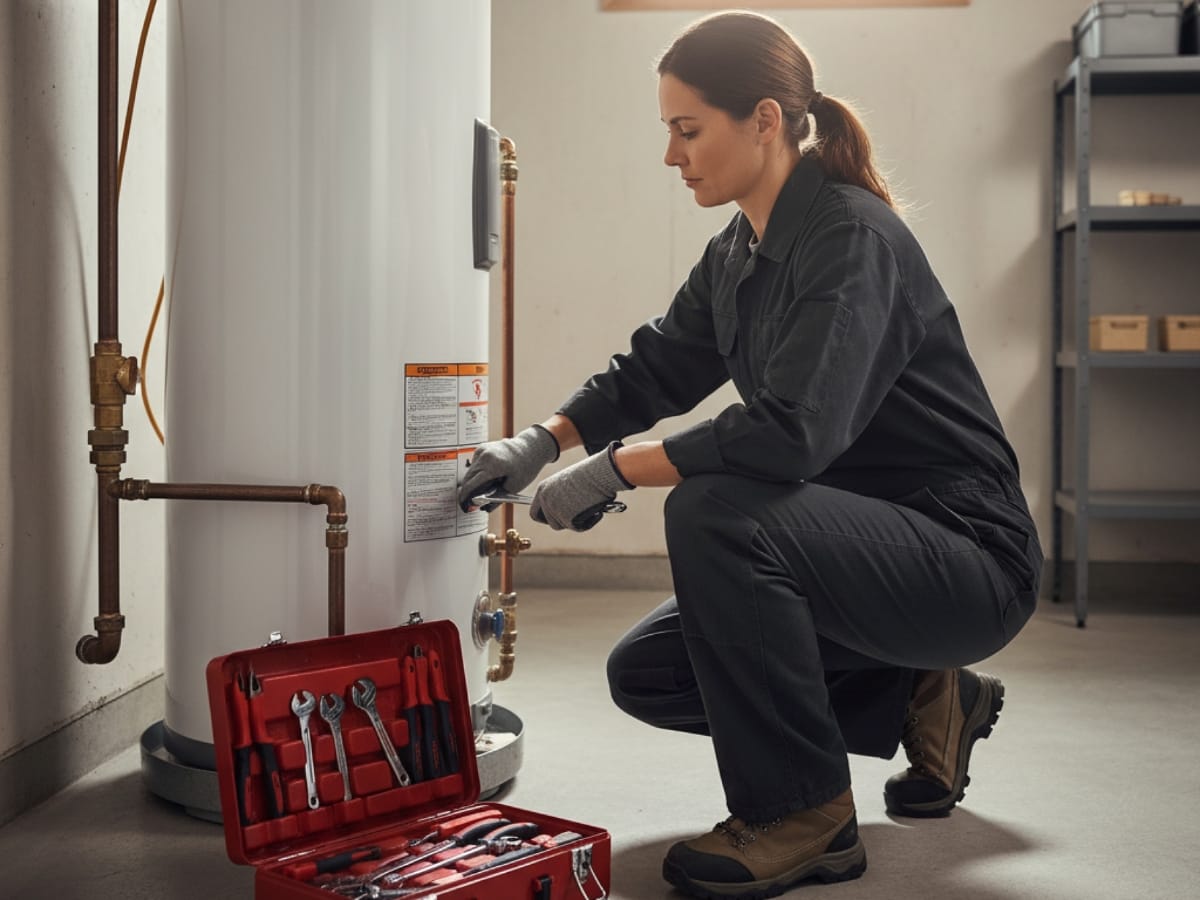While air conditioning is often associated with comfort and relief from the heat, its benefits extend far beyond merely keeping you cool. Modern air cooling systems can play a crucial role in enhancing your overall well-being.
From improving indoor air quality to helping you sleep better, air conditioner benefits range far and wide. In this guide, we’ll uncover the top health benefits of air conditioning, shedding light on how it can positively impact your physical and mental health.
Whether you’re looking to alleviate allergy symptoms, reduce the risk of heat-related illnesses, or simply create a more comfortable living environment, discover how air cooling can contribute to a healthier, more enjoyable lifestyle.
Beat the Heat, Boost Your Health: An Air Condition System’s Surprising Benefits
Air Conditioning Improves Indoor Air Quality
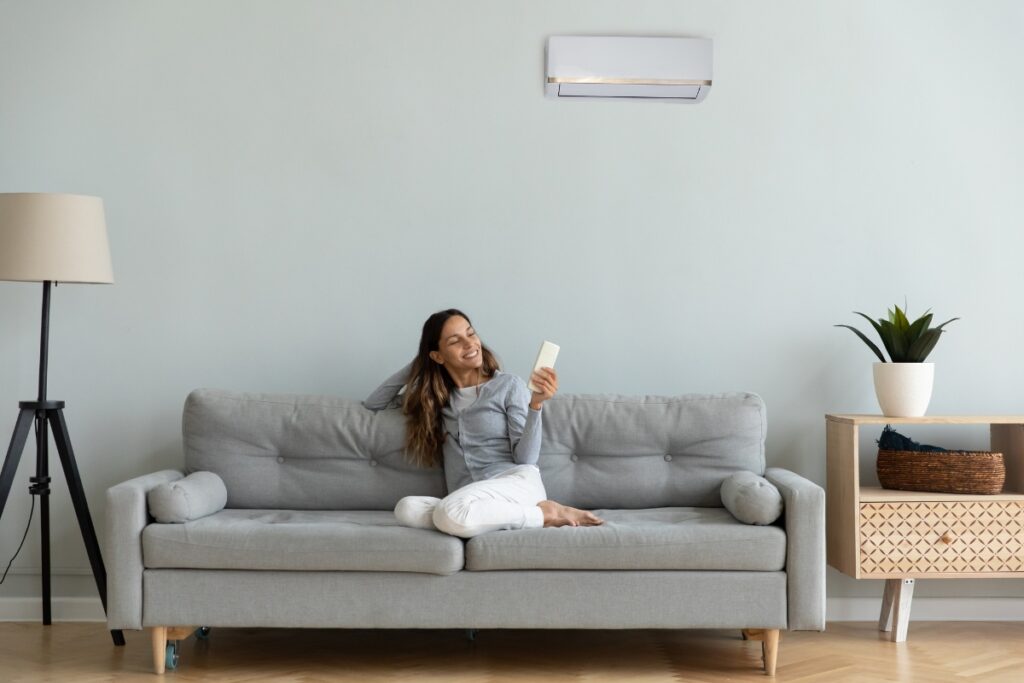
One of the key benefits of air conditioning is its ability to enhance indoor air quality. Air conditioning systems are equipped with filters that can effectively remove pollutants, allergens, and even bacteria from the air. This is especially beneficial for individuals who suffer from allergies or respiratory conditions such as asthma.
By circulating and filtering the air, it helps to create a cleaner and healthier living environment. Air conditioning reduces the presence of dust mites, pet dander, pollen, and other airborne particles that can trigger allergic reactions or respiratory distress. This is particularly important for those who spend a significant amount of time indoors, such as young children, the elderly, or individuals with compromised immune systems.
Furthermore, your cooling unit can also help to control humidity levels in your home. Excessive humidity can promote the growth of mold and mildew, which can have detrimental effects on your respiratory health. By maintaining optimal humidity levels, this helps to prevent these issues and ensures a healthier living space.
Air Conditioning Reduces Allergens and Pollutants
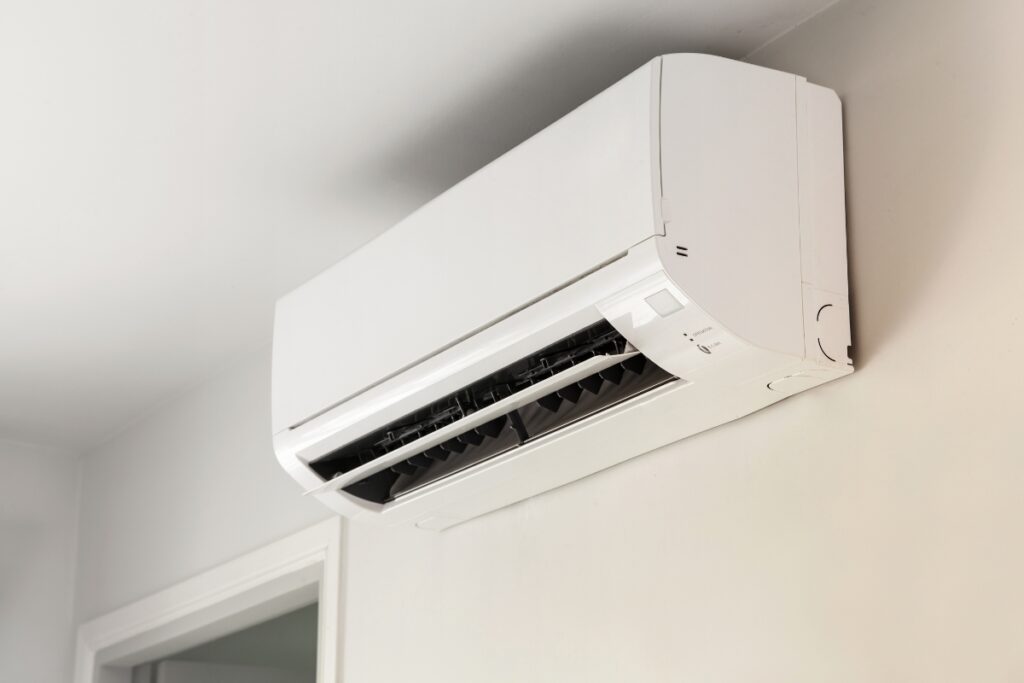
When it comes to boosting your well-being, one often overlooked aspect is the impact of air conditioner units on reducing allergens and pollutants in your environment. The benefits of an air conditioner extend beyond just keeping you cool on hot days. By effectively reducing allergens and pollutants in the air, air conditioning leads to improved indoor air quality and helps boost your overall health and quality of life.
One of the key advantages of a cooling unit is its ability to filter out allergens like dust, pollen, and pet dander. These common triggers for allergies and respiratory problems can be effectively removed from the air circulating in your home or office, creating a cleaner and healthier indoor environment.
In addition to allergens, air improves indoor air by filtering out pollutants such as smoke particles or volatile organic compounds (VOCs) that may be present in indoor environments. These pollutants can have harmful effects on your health when breathed in over an extended period of time. By removing them from the air you breathe indoors, air cooling contributes to a healthier living space.
Moreover, maintaining a controlled indoor temperature through air cooling can also prevent the growth of mold and mildew. Excess humidity and heat create an ideal environment for mold to thrive, which can have serious health implications, including respiratory infections and allergies. By keeping the air cool and dry, air cooling inhibits the growth of mold, safeguarding your health.
Preventing Heat-Related Illnesses
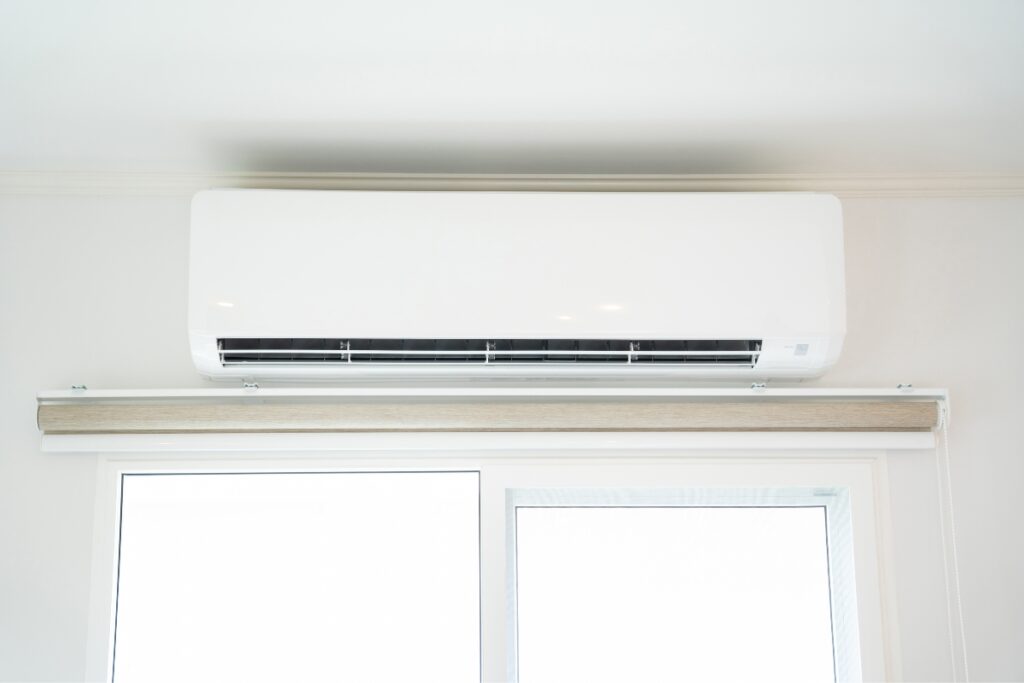
One of the significant benefits of air conditioning is its role in preventing heat-related illnesses, which can be particularly dangerous during hot summer months. Heat exhaustion, heat cramps, and the more severe heat stroke are all conditions that can arise from prolonged exposure to high temperatures. Air conditioning provides a cool, controlled environment that helps regulate body temperature, reducing the risk of these conditions.
By maintaining a comfortable indoor temperature, air cooling allows the body to recover from the heat experienced outdoors. This is especially important for vulnerable groups such as the elderly, young children, and those with chronic illnesses, who are more susceptible to heat stress. Moreover, air cooling can help improve sleep quality, as cooler temperatures promote better rest, further enhancing overall health and well-being.
In workplaces, air cooling contributes to increased productivity by creating a comfortable environment that mitigates the physical stress caused by heat. Employees are less likely to suffer from heat-related fatigue, leading to better concentration and efficiency. Additionally, in educational settings, a cool environment ensures that students can focus on their studies without the distraction and discomfort of excessive heat.
An Air Conditioning System Helps With Regulating Body Temperature
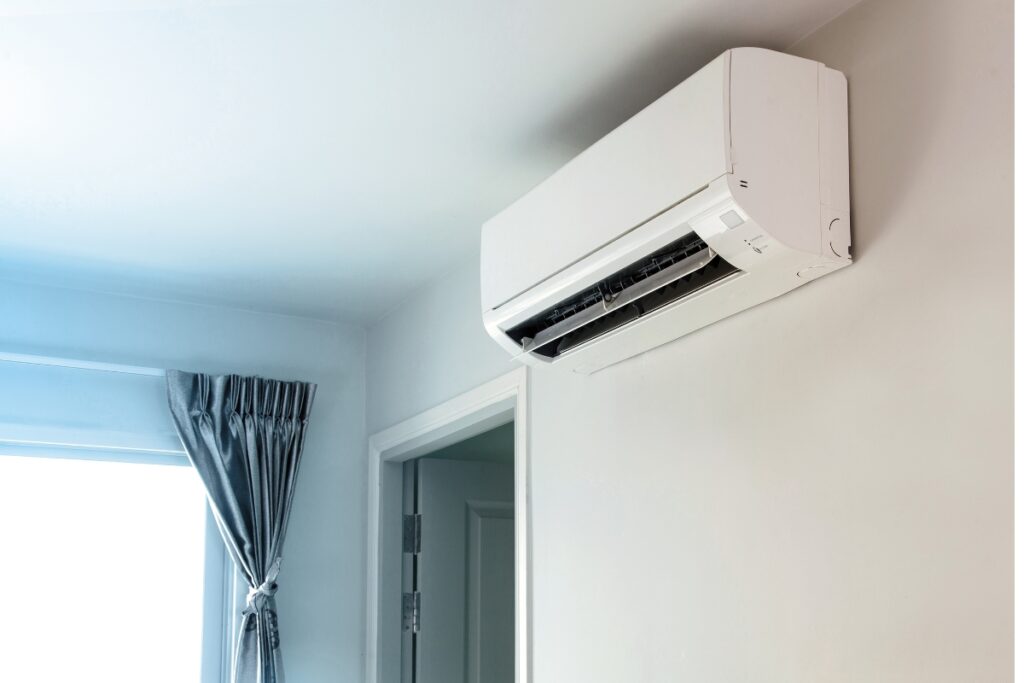
Air conditioning improves indoor spaces during hot weather. This cooling effect helps to prevent the body from overheating, which can lead to heat exhaustion, dehydration, and in severe cases, heat stroke.
By maintaining a comfortable indoor temperature, air cooling allows individuals to stay cool and safe, especially during heatwaves and high-temperature periods.
For those with medical conditions, such as cardiovascular diseases or respiratory issues, regulating body temperature is even more critical. Excessive heat can exacerbate these conditions, making air cooling an essential tool for managing health.
Similarly, elderly people and young children, who are more susceptible to temperature fluctuations, benefit significantly from a stable and cool indoor climate.
Air Conditioning Improves Sleep Quality
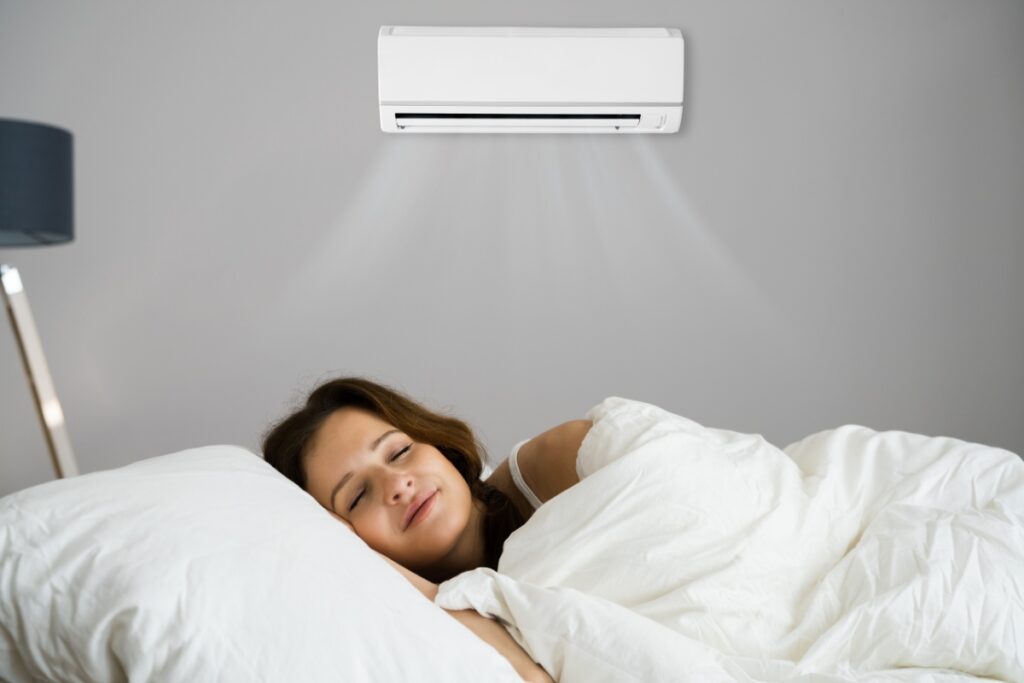
Air conditioning plays a vital role in improving sleep quality, which is essential for overall health and well-being. The body’s ability to achieve restful and restorative sleep is significantly influenced by the surrounding environment, particularly the temperature. By providing a cool and comfortable sleeping environment, air cooling can enhance the quality of sleep, leading to numerous benefits.
During sleep, the body’s core temperature naturally decreases to initiate and maintain sleep. A cooler room can support this process, making it easier to fall asleep and stay asleep throughout the night. Conversely, a hot and stuffy environment can cause discomfort, frequent awakenings, and difficulty in achieving deep sleep stages. Air conditioning helps maintain an optimal temperature that aligns with the body’s needs, promoting uninterrupted and restorative sleep.
In addition to personal benefits, air cooling can also enhance the sleep environment in households with multiple occupants. Families can benefit from a consistent and comfortable temperature that meets the needs of all members, ensuring everyone gets a good night’s sleep. This is especially important for households with infants, young children, or elderly individuals who may be more sensitive to temperature changes.
Moreover, air cooling can improve sleep quality in various settings beyond the home, such as hotels, hospitals, and dormitories. Guests, patients, and students can all experience better rest and recovery in a temperature-controlled environment, which contributes to overall satisfaction and well-being.
Boosting Productivity and Mental Well-Being
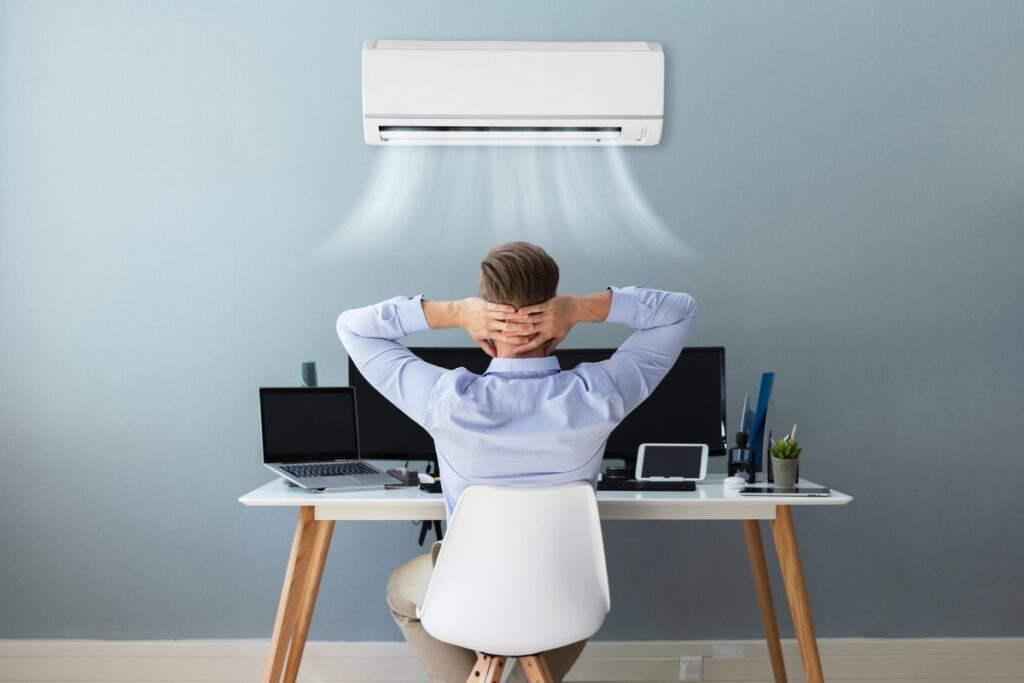
Air conditioning is not only essential for physical comfort but also plays a crucial role in boosting productivity and mental well-being. A well-regulated indoor climate can significantly impact cognitive functions, emotional stability, and overall performance, making air cooling an invaluable asset in both professional and personal settings.
In workplaces, maintaining a comfortable temperature through air cooling can lead to increased productivity. Excessive heat can cause discomfort, fatigue, and difficulty concentrating, which can hinder performance and efficiency. By providing a cool and stable environment, air cooling helps employees stay focused, alert, and motivated, leading to higher productivity and better work outcomes. This is particularly important in high-stress or high-demand jobs, where mental clarity and sustained attention are crucial.
Educational institutions also benefit from air cooling, as it creates an optimal learning environment. Students are better able to concentrate, retain information, and participate actively in class when they are comfortable. This leads to improved academic performance and a more positive learning experience. Teachers and staff also benefit from a comfortable environment, enabling them to perform their duties effectively and maintain a positive attitude.
Air conditioning contributes to mental well-being by reducing stress and promoting relaxation. Excessive heat can increase stress levels and irritability, impacting mood and emotional health. A cool environment, on the other hand, can help individuals feel more relaxed and calm. This is particularly beneficial for those dealing with anxiety or mood disorders, as a comfortable temperature can create a more soothing and supportive environment.
Managing Humidity Levels
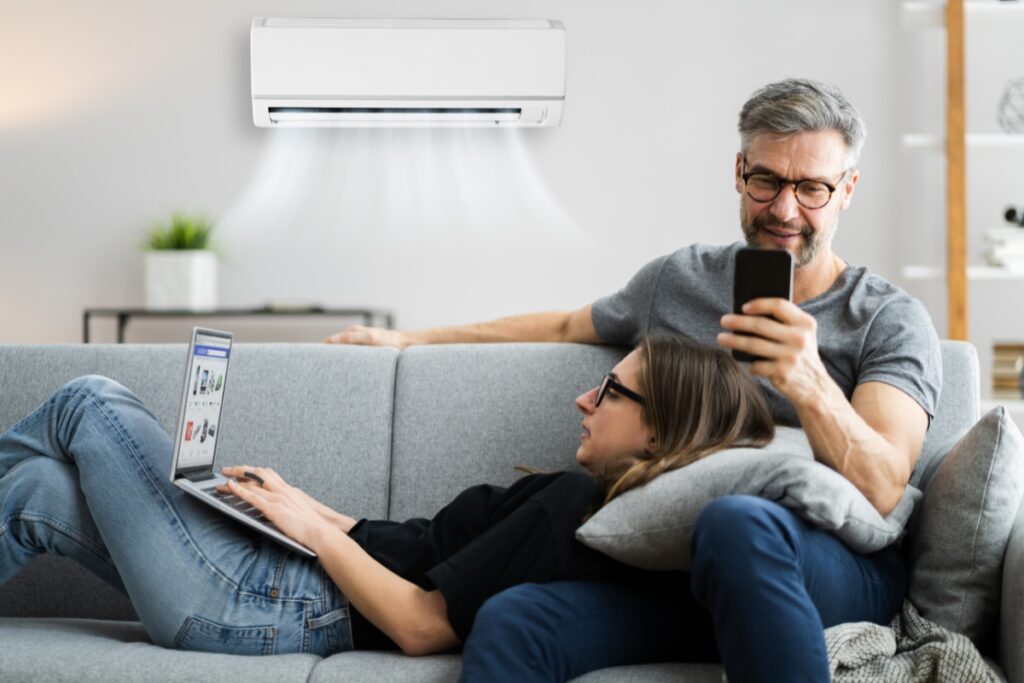
One of the often-overlooked benefits of air conditioning is its ability to manage humidity levels within indoor environments. Proper humidity control is essential for both health and comfort, and air cooling systems are particularly effective at maintaining an optimal balance.
High humidity levels can create a host of problems, ranging from physical discomfort to serious health risks. Excessive moisture in the air can make temperatures feel hotter than they actually are, leading to increased sweating and discomfort.
This can be particularly troublesome in regions with naturally high humidity, where the combination of heat and moisture can become oppressive. Air conditioning systems dehumidify the air as they cool it, extracting excess moisture and leaving the indoor environment more comfortable and breathable.
Maintaining appropriate humidity levels is also crucial for respiratory health. High humidity can foster the growth of mold, mildew, and dust mites, all of which can trigger allergies and asthma attacks. By reducing indoor humidity, air cooling helps to create a healthier environment, minimizing the presence of these allergens and improving overall air quality. This is especially beneficial for individuals with respiratory conditions or sensitivities to airborne irritants.
In addition to health, managing humidity levels with air cooling can protect your home and belongings. Excess moisture can cause damage to furniture, electronics, and building materials over time. Wood can warp, paint can peel, and metal can corrode, leading to costly repairs and replacements. By keeping humidity in check, air cooling helps preserve the integrity of your home and extends the lifespan of your possessions.
Furthermore, a balanced humidity level can enhance comfort and well-being. Low humidity, while less common, can also pose problems such as dry skin, irritated eyes, and respiratory discomfort. Air cooling systems can help maintain a moderate humidity level, avoiding the extremes that lead to such issues.
Conclusion: The Essential Role of an Air Conditioner on Your Health
Air conditioning offers numerous benefits that often go unnoticed. Investing in air cooling not only provides comfort but also contributes to a healthier lifestyle. So the next time you enjoy the refreshing coolness of your air-conditioned home or office space, remember that it’s not just about comfort—it’s about taking care of your health too.
Enhancing your well-being with the benefits of air cooling can significantly improve your quality of life. For expert installation and maintenance of your air conditioning system, choose CoolPro Heating & Cooling. Our air conditioning services team is here to ensure your home stays comfortable and healthy. Submit a service request through our online form or call 770-694-6232 to learn more about our services and schedule a consultation. Let CoolPro Heating & Cooling help you create a healthier living environment.

